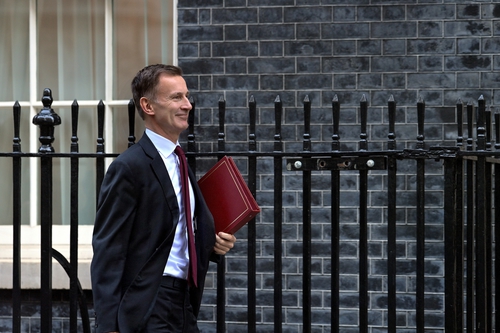Tax audits cast a lingering chill over targeted firms, study suggests
Everyone favours companies paying the right tax but Bayes research suggests there could be an economic cost to tax audits
Tax audits improve companies’ compliance but hit their investment plans and trigger volatility in their share price, new research from a Bayes academic suggests.
The study concludes that the uncertainty associated with intense and prolonged scrutiny by the tax authorities probably increases companies’ tax payments for up to three years – but that the economic downside also lingers after the auditors have moved on.
Researchers at Bayes Business School (formerly Cass), City, University of London and Booth School of Business, University of Chicago, used generative AI tools to assess the impact of Internal Revenue Service (IRS) audits on 3,284 American companies.
Implications for UK and many other nations
Co-author Ga-Young Choi, a lecturer in accounting at Bayes, says the findings are likely to be applicable to many similar economies, including the UK.
“Shareholders often expect companies they have a stake in to engage in a certain level of tax avoidance. Obviously, we all want the tax authorities to ensure that companies – particularly large corporations – pay their fair share of tax to fund vital public services. However, policymakers and tax authorities can use these insights to balance that objective with the potentially negative impact on corporate behaviour and therefore the wider economy.”
The analysis revealed that firms typically reduce investment by 3.2 percent during a tax audit – and by 4.1 percent in the next three years. They suggest the ongoing impact might reflect the lag in changing investment plans once key decisions have been made. However, firms also reduce borrowing in the years after an audit – possibly reflecting changed investment plans and potential lenders attaching a risk-related premium for loans during and following tax audits.
The paper concludes that “the market reacts negatively to disclosures that contain uncertain expectations about negative future tax settlements”.
The researchers analysed data on Form 10-K, the annual report that provides a comprehensive overview of a company's business and financial condition and includes audited financial statements. It is distinct from the annual report for shareholders.
While emphasising that their analysis did not measure impact on GDP or growth, the researchers said it was reasonable to assume that reduced investment by companies subject to audits is likely to have a cumulative negative impact on national economies.
Dr. Choi says firms’ greater compliance and higher tax payments during and after audits reflects that while the authorities are looking at past returns, they also exert a monitoring role on the current returns by accessing firms’ confidential information about contracts for current and future business.
Onus on tax authorities to boost efficiency of audits
Co-author Alex G. Kim, a PhD student at Booth, says: “That monitoring effect means firms are more tax compliant and this effect lingers even after the audit is over. Compliance peaks during the audit and in the first year after and then declines – but the impact is still visible at year three.
“Given these findings, the tax authorities should ensure their auditing procedures and processes minimise the negative impact on firms by having a clear focus on the information they are reviewing. They should also ensure that, once announced, audits are undertaken as speedily and efficiently as possible.”


